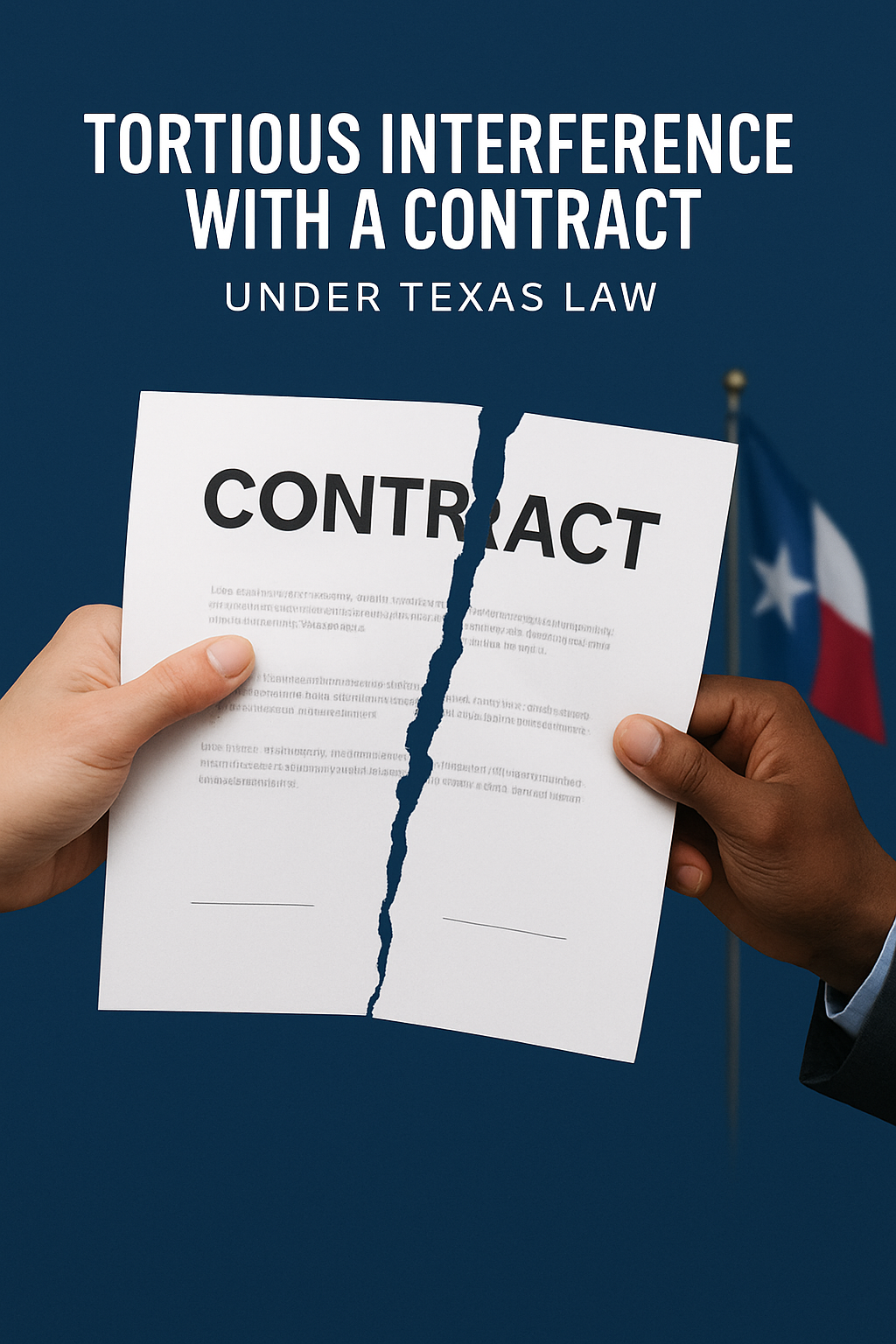
Tortious interference with a contract is a well-established cause of action in Texas, and it serves as a powerful remedy when one party intentionally disrupts the contractual relationship of another. In plain terms, it allows a wronged party to hold a third party accountable for wrongful conduct that causes a contract to be breached or otherwise undermined.
Elements of the Claim
To prevail on a claim for tortious interference with a contract in Texas, a plaintiff must generally prove:
- Existence of a valid contract – There must be a legally enforceable contract in place.
- Willful and intentional interference – The defendant must have knowingly and intentionally interfered with the agreement.
- Proximate cause – The interference must have proximately caused injury or damage.
- Actual damages – The plaintiff must have suffered actual, ascertainable damages as a result.
Texas courts often emphasize the intentionalityrequirement: it is not enough that a third party’s conduct incidentally made performance more difficult. The defendant must have acted with the purpose of disrupting contractual performance.
Remedies
Available remedies can include both actual damages (such as lost profits or increased costs) and exemplary damages where malice can be shown. Injunctive relief may also be available in certain cases to prevent ongoing or future interference.
A Brief History in Texas
Tortious interference with a contract has deep common-law roots, tracing back to English law in the 19th century. Texas formally recognized the cause of action in the early 20th century, drawing heavily from the U.S. Supreme Court’s recognition of interference torts and subsequent Texas Supreme Court opinions.
One of the most influential Texas cases is Sakowitz, Inc. v. Steck, 669 S.W.2d 105 (Tex. 1984), where the Texas Supreme Court articulated the contours of intentional interference and clarified that even indirect disruption can qualify if the intent requirement is met. Over time, Texas courts have consistently refined the doctrine, often balancing free competition with the sanctity of contractual obligations.
More recently, Texas courts have narrowed and clarified the boundaries, particularly distinguishing tortious interference with existing contracts from interference with prospective business relations. This distinction reflects Texas courts’ sensitivity to protecting legitimate competitive activity while policing conduct that crosses into wrongful means.
Why It Matters
For Texas businesses and individuals, tortious interference claims underscore the importance of respecting contractual boundaries. In industries where contracts are the lifeblood of commerce—real estate, construction, oil and gas, and professional services—knowing when competitive activity might cross into actionable interference can be critical.
At David C. Barsalou, Attorney at Law, PLLC, we help clients navigate business, family, tax, estate planning, and real estate matters ranging from document drafting to litigation with clarity and confidence. If you’d like guidance on your situation, schedule a consultation today. Call us at (713) 397-4678, email barsalou.law@gmail.com, or reach us through our Contact Page. We’re here to help you take the next step.